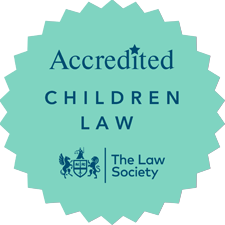Buying and/or selling a house can be a stressful period in your life with constant pressure to exchange contracts as quickly as possible. What happens if you discover the seller was a fraudster after contracts were exchanged and the transaction completed? The recent decision of the Court of Appeal in Dreamvar (UK) Limited v Mischcon de Reya; P&P Property Ltd v Owen White & Catlin LLP has come as good news to unsuspecting purchasers.
The Facts
P&P Property Ltd v Owen White & Catlin LLP
In 2013, an individual, posing as the owner of a property, ‘Mr Harper’ put the property on the market and instructed solicitors to act on his behalf. The individual had no legal title to sell the property. P&P, a property investment company, purchased the property for £1.03 million. It was only when the true owner of the property walked past the building and saw the kitchen being removed that the deception came to light, long after the fraudster had absconded with the purchase monies.
Dreamvar (UK) Limited v Mischcon de Reya
In 2014, Dreamvar, a residential development company, found itself in a very similar situation, handing over £1.1 million for a property which turned out not to be owned by the individual posing as the seller. Dreamvar sued its solicitors, Mischcon de Reya (‘MdR’), and the seller’s solicitors, Mary Monson Solicitors (‘MMS’).
Decision at first instance
Despite inadequate checks being carried out on the seller’s identity, the sellers escaped liability for negligence, breach of trust and breach of warranty in both cases. This was based on the fact that the solicitors owed no duty of care to the purchasers, who were not their clients, and there was no obligation to ensure the transaction was genuine. The decision seemed unfair as it allowed seller solicitors who had not carried out appropriate checks to escape liability. P&P and MdR appealed the decision.
On Appeal
Despite not being liable for negligence in both cases, The Court of Appeal did impose liability for the losses suffered, on the seller solicitors, for breach of trust and breach of undertaking.
Breach of Trust
The seller solicitors denied liability for breach of trust on the basis that the Law Society Completion Protocol provided them with necessary authority to hold and release the purchase monies to their clients, free of any liability to the purchasers. They argued that once completion had taken place, the point at which the purchase monies were received by them, the seller automatically and instantly became entitled to the money as if paid directly to the seller. The Court of Appeal rejected this argument on the basis that there was no ‘completion’. The Court of Appeal stated ‘The vendors had no title and the transfers were forgeries. Since completion did not take place, the vendor solicitors had no authority to release the money to their clients’. The court of appeal found the seller solicitor’s were therefore liable for the purchase price.
Breach of Undertaking
The Court of Appeal concluded that solicitors acting on behalf of sellers should ensure they are instructed by the genuine owner of a property and not an imposter. If the purchaser can demonstrate that they have relied on that warranty, the seller solicitors will be liable for the losses suffered by the purchaser if the transaction ends up being fraudulent.
What next
The outcome in both cases means that conveyancing solicitors will need to be even more vigilant in verifying their client’s identity and it is no surprise that stringent checks are being undertaken by solicitors and conveyancers across the board.
Our Emery Johnson Astills Conveyancing Team in Leicester and Loughborough are happy to assist if you are buying or selling a house.
If you require assistance or further information, please contact our Emery Johnson Astills Conveyancing Team on 0116 2554 855 (Leicester) or 01509 610 312 (Loughborough).








